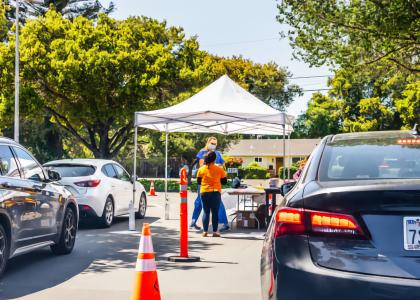Mental Health
COVID-19 Supplement to a Computational Examination of Threat and Reward Constructs in a Predominantly Low-Income, Longitudinal Sample at Increased Risk for Internalizing Disorders

This project will study how COVID-19 is impacting mental health in marginalized, low-income, minority populations. Moreover, it will document the way in which resilience factors, including social support, economic policies, and family resources, moderate the negative effect of COVID-19 related stressors on mental health.
Socio-Cultural Stress Profiles, Stress Responses, and Health in Mexican American Adolescents

This project examines ways in which the COVID-19 pandemic amplifies the socio-cultural stressors and health disparities experienced by Mexican-origin, low-income adolescents who are making the transition to young adulthood.
Assessing the Effectiveness of a Digital Platform to Support the Mental Health of Healthcare Workers in the Response and Recovery Phases of COVID-19

There is a critical need to develop and test scalable digital approaches which can identify, address and support the well-being of healthcare workers (HCW) over time and beyond the pandemic.
mHealth Mindfulness Intervention for Pregnant Black and Latina Women at Risk of Postpartum Depression

Postpartum depression (PPD) is a debilitating and costly condition affecting over 20% of postpartum women and disproportionately impacts Blacks and Latinas. The COVID-19 pandemic is leading to a severe increase in the rate of depression while the US is already struggling with deep-seated inequities in mental health care for Black and Latina populations.
Fragile Families and the Transition to Adulthood

This project collects new data specific to the Fragile Families and Child Wellbeing Birth Cohort Study (FFCWS) young adults’ health, wellbeing, and environments in the context of the pandemic.
Toward Next Generation Data on Health and Life Changes at Older Ages

This administrative supplement continues a high-frequency longitudinal survey of Americans’ experiences and behavior during the COVID-19 pandemic to measure perceptions of coronavirus risk, individual prevention behaviors, consumption of coronavirus information from various sources, effects on households' financial situations and physical and mental health, and coping behavior of households.
ABCD-USA Consortium: Research Project Site at CHLA

This study leverages ABCD’s infrastructure, cohort, and existing protocol to rapidly characterize the impacts of the COVID-19 pandemic on each child in the study, including the impact on their families and communities.
Efficacy of a Healthy Lifestyle Intervention to Prevent Depression in Older Spousally-bereaved Adults-Supplement

This proposed Administrative Supplement aims to increase the reach, uptake, and sustainability of our existing behavioral-health intervention to accommodate older spouses bereaved by COVID-19 who are seeking prevention and self-management strategies to manage psychiatric symptoms both during and following the pandemic.
Mental Health Research Network III

This study uses the infrastructure of the Mental Health Research Network to examine how changing from office visits to telehealth visits disrupts care of people with mental health conditions in three healthcare systems.
Urgent Revision to Creating Peace: Community-level Intervention to Reduce Youth Violence

This intervention involves community members and youth leaders assessing child and youth thriving in their neighborhood, using a community-developed Child/Youth Thriving Matrix tool to engage in structured dialogue on neighborhood transformation, racial and gender equity, youth engagement, and organizing for social change.